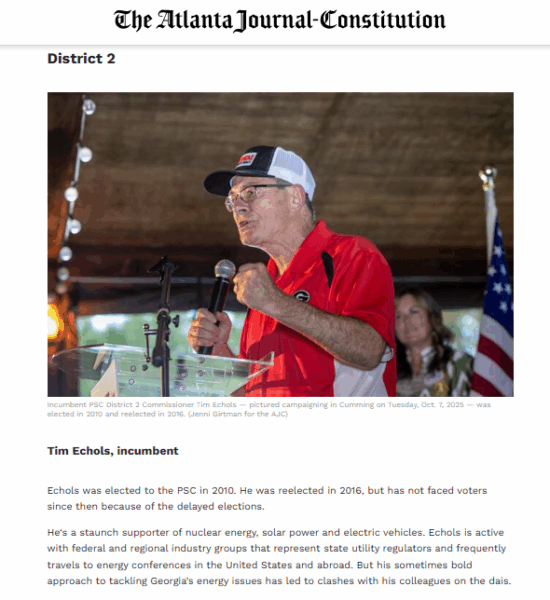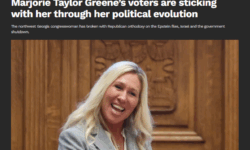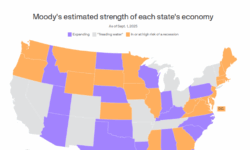This podcast episode, aired on October 13, 2025—the same day early voting begins in Georgia—centers on the host’s live reaction to former state Rep. Vernon Jones’ surprise campaign announcement for Georgia Secretary of State. The episode opens with Jones’ announcement video, where the longtime Trump ally and party-switcher (from Democrat to Republican in 2021) vows to “protect your vote” by securing paper ballots, enforcing strong voter ID laws, limiting mail-in voting, and restoring trust in elections shaken by past controversies. He frames Georgia as “the heartbeat of America” needing “leadership that will defend and restore trust,” while also promising to “cut red tape for small businesses” and “bring accountability back to government” for “integrity at every level.” Jones positions himself as a faith-driven, “America First” candidate ready to make Georgia a national model for election security, prioritizing “the people, not the politicians.”
The host, who interviewed Jones six weeks prior and followed up weekly via text, expresses excitement but questions the late timing. He argues it’s not too late for a recognizable figure like Jones (or even Rep. Marjorie Taylor Greene in a hypothetical race), given their built-in name recognition. This move, he suggests, reflects broader Republican unease with the current Secretary of State field: Gabriel Sterling (a controversial election official), Tim Fleming (endorsed by Rep. John Burns and 70 state House members), and Kelvin King (noted as the primary contender). The host emphasizes the “must-win” nature of constitutional offices—Governor, Lt. Governor, Secretary of State, and Attorney General—for installing “strong conservative, America First” leaders, lamenting the lack of competition in the AG race (where incumbent Brian Strickland faces minimal opposition).
Shifting gears, the host dives into the Public Service Commission (PSC) races—Georgia’s powerful utility regulator—profiling key District 2 and 3 candidates ahead of early voting. In District 2, incumbent Republican Tim Ekkes (elected 2010, reelected 2016) is praised as a nuclear energy, solar power, and electric vehicle advocate deeply involved in national data center issues, though the host warns that booming AI/data demands could prioritize corporate interests over consumer bills (noting the “lock” on utility monopolies). His opponent, Democrat Fitz Johnson (Georgia managing principal at Health Management Associates), focuses on “equity, efficiency, and sustainable development” in national projects. In District 3, incumbent Republican Fitz Johnson faces criticism for votes approving Georgia Power rate hikes since 2023 and shifting $10 billion in overruns from the Vogtle nuclear plant to ratepayers. The host highlights the PSC’s historical significance: It was the first statewide race Republicans won decades ago, kickstarting Georgia’s “red turn” and eventual sweep of all constitutional offices (culminating with Sam Olens as AG).
The episode’s tone turns fiery in a lengthy, unfiltered rant against Georgia GOP Rural County Chairman Dennis Futch, portrayed as a “condescending asshole” with a “checkbook” to buy influence. The host accuses Futch of hypocrisy—pushing resolutions to expel party members (including the host) over alleged fraud, while ignoring $60,000+ in questionable GOP spending (e.g., Josh McKoon’s consultant fees and credit card misuse at steakhouses). He mocks Futch’s invented “chairman of the Georgia Rural Voter Task Force” role (despite earning only 38 votes in his failed GOP chair bid and blowing $30,000 on an empty pre-convention party), claiming it was a self-awarded position via donations, not merit. Ties to a $140 million Ponzi scheme involving GOP insiders (e.g., the Frost family and First Liberty Bank) are alleged, with Futch silent on those but aggressive on purges. The host shares anecdotes of Futch’s rudeness (e.g., dismissing rural county chairs like in Pickens and Oconee) and failed outreach, calling for GOP unity to avoid Democratic gains in PSC races that could “communist”-like reverse Republican dominance. He ends on a personal note, thanking his co-host for studio support and teasing a return at 8 a.m. the next day.




